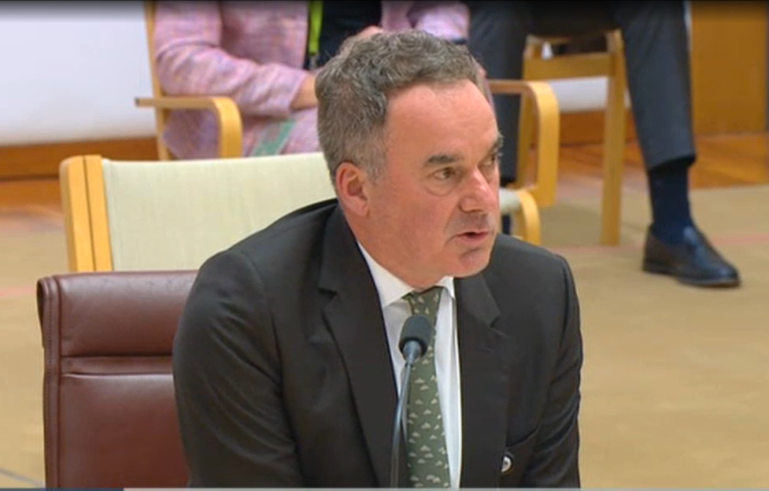Screen Australia CEO Graeme Mason has acknowledged that the government’s proposed media reforms may result in fewer theatrical features but said the organisation remained committed to supporting projects for which cinemas were the “perfect home”.
Mason appeared at a Senate Estimates hearing on Tuesday evening, where the box office success of Australian films such as The Dry and Penguin Bloom was used to springboard into how proposals, such as the lowering of the Producer Offset for feature films to 30 per cent, would impact the industry.
The session comes a week after a delegation of actors, crew, writers, and producers came to Canberra to challenge the reduction of the offset, among other reforms relating to the sector.
After assuring the committee that he was “aware of all the concerns that may be around” regarding the changes, Mason was asked by Senator Nita Green whether the proposals could result in fewer Australian feature films, to which he responded that some of the reforms were exacerbating “things that were happening anyway”.
“Many people were choosing to go to the cinema for a particular type of experience, and a different type of experience that back in my day you would go there to see, [which you] can now potentially have from home with a cup of tea or a stiff drink,” he said.
Screen Australia was trying to make sure there were stories for Australians by Australians “wherever they are consuming them”, Mason said.
“You will probably see some fewer films made for cinema but I don’t think that’s necessarily as bad as it sounds on the tin, as long as we are able to support those that really stand up that should be in the cinema,” he said
“I’m not saying they should all be big Marvel films; we’ve had great success with films like High Ground and documentaries that have done incredibly well in the cinema.”
“Our intent is to back those things where their perfect home is to be in a cinema.”
The government announced $30 million in funding for Screen Australia across two years to coincide with the proposed start date of the Producer Offset reform in July, as a way to support the production of Australian drama, documentary, and children’s film and television content.
Mason said while the funds for the coming financial year had not been committed, Screen Australia was “working with everybody” to determine the best use of the money.
“One of the big things we are looking is how we can ensure the content that is made has the best chance of reaching the audience it was intended for,” he said.
“We are in a huge period of change, like much of the world, but our sector is changing, particularly the way people consume content.
“We’re trying to ensure the way its created is still the best for the Australian people the way it is now and that it is seen by those people.”
The distribution of the funds was the subject of further questioning by Senator Green, who queried whether it would be enough to “get us where we need to go”, and whether one of the intended categories would need more attention than the others.
Mason said Screen Australia’s focus was to apply a holistic approach to the health of the sector, noting the government has also given the Australian Children’s Television Foundation (ACTF) an extra $20 million over two years to ensure children’s content is promoted.
“Something we are looking at would be where children’s content is currently not supported by anybody,” he said.
“One of the things we are looking at is how we could work with online space, which is the other huge way kids are watching content, e.g. YouTube, Facebook.”
“We’re trying to ensure Australian voices are heard for children watching that platform as well.
“[In terms of] features, documentary, and drama, we continue to be very active in all those spaces and are looking to work with as many partners as possible to keep production at good levels.”


